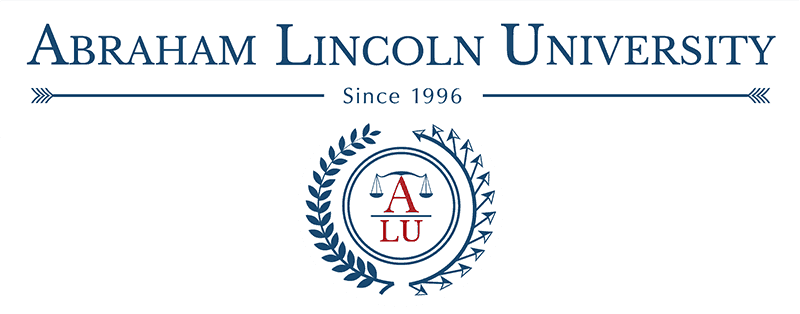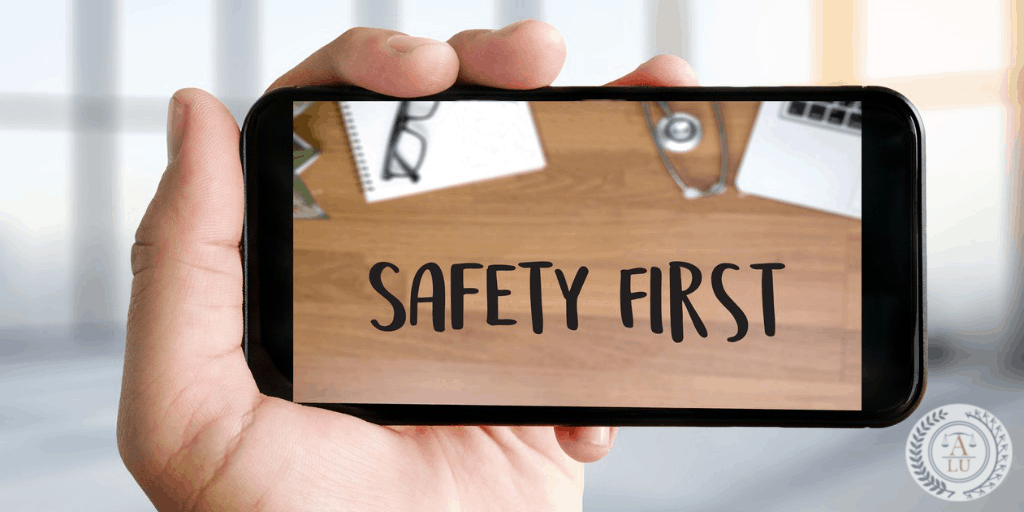This guide will help you through your journey as an online student with tips on safe internet activity. Advanced education has become more flexible than ever before. Everything from a Accounting Certificate to a Juris Doctor degree (and nearly everything in-between) is now available online. In fact, approximately one in three postsecondary students in the United States currently take at least one course online. And a significant percentage of those students take most or all of their courses online.*
Earning an online education can increase both activity and risk for the student. There are a number of important things for students to know about internet safety and internet law in order to lower that risk and maintain a safe and successful experience through to graduation and beyond. For example, your personal information may be at risk, or you may be committing internet crimes without even being aware of it. Put yourself in the best position to thrive by following these internet safety tips and guide to internet law for online students.
Internet Safety Tips
Avoid Internet-Based Scams
Online students should possess a general awareness and understanding of some of the most common scams on the internet. While the internet has opened up a world of knowledge to billions of people around the globe, it has also become a conduit for fraud. The good news is that many internet scams are similar, and they can generally be avoided with proper care and precautions. Watch out for:
- Phishing schemes: Illicit attempts to get access to your passwords or sensitive financial information through the use of fraudulent websites.
- Worms, Viruses, and Ransomware: Destructive programs that infect a computer in order to cause damage or extract payment from the victim.
- Prize/Lottery Scams: Messages or advertisements asking for sensitive personal or financial information in exchange for a reward that will never come.
The bottom line: Online students can never be too careful on the web. It is best to avoid clicking links or downloading attachments that were sent by people that you do not know. Likewise, you should only give your personal or financial information to trusted websites. Finally, as the Federal Trade Commission (FTC) warns, always double check the website URL you’re using before putting in financial information.
Protect Passwords and Financial Data
Unfortunately, identity theft has become one of the biggest threats to internet safety. The Insurance Information Institute (III) reports that identity theft results in nearly $16.8 billion in financial losses every year. As an online student, it’s crucial that you take the proper steps to protect and store your passwords, personal information, and financial information. Use these tips to help protect yourself:
- Do Not Use Obvious Passwords: Far too many people fail to select secure passwords. Shockingly, a study from Data Genetics found that more than 10 percent of people use the numbers “1,2,3,4” as their four-digit ATM pin number. This is a mistake! The same principle applies on the internet. Be sure to use passwords that are difficult for hackers and fraudsters to crack.
- Vary Your Passwords: Data breaches happen. Sadly, it has become a fact of life on the internet. Poor cybersecurity by a company could result in your sensitive information being exposed. For this and other reasons, it is highly recommended that you vary your passwords across websites. You do not want one hack to result in all of your accounts being exposed at once. Use a password manager to keep yourself organized.
- Use Reliable Firewalls and Anti-Spyware Programs: One of the best things that online students can do to protect themselves is to ensure that they are accessing the internet from a safe place. If you are using a computer and an internet connection that has a strong firewall, anti-spyware programs, and virus protection, you will be much better off.
- Avoid Using Debit Cards, Avoid Wiring Money: Are you considering purchasing something online? If so, the best thing you can do is to use a credit card to complete the transaction. Not only do credit card companies usually voluntarily offer better fraud protection to customers, but important federal laws such as the Fair Credit Billing Act provide strong legal protection. With debit cards, and especially wire transfers, consumers have very limited fraud protection.
- Check Your Credit Periodically: No matter how safe you are online, there’s always the possibility that a data breach could occur. As frustrating as it is, it doesn’t have to be the end of the world. Make sure you check your credit reports at least once per year to ensure that no one has opened up accounts or taken out loans in your name.
What to Know about Internet Law in the United States
Be Careful What You Say and Write
Under the First Amendment to the United States Constitution, freedom of speech is a protected legal right. Of course, there are limitations to a person’s speech rights — with two of the most important being the laws that prohibit libel and slander. Libel is the publishing of false statements that are designed to harm another party’s reputation. Put another way, libel is written defamation. Slander is similar to libel, except that it covers oral defamation. This could include statements made in a video posted on the internet. There are state and federal laws that protect people against defamation — and they cover content posted on the internet. If you libel or slander another person online, you may be breaking the law.
Protect Your Data and Your Privacy
For online students, digital privacy rights matter. You need to be able to protect your data and your privacy as you use the internet. There are certain regulations that can be used to help you do this. For example, provisions within the Financial Services Modernization Act allow commercial entities to protect the sensitive financial information that they receive from consumers. Likewise, the Health Insurance Portability and Accountability Act (HIPAA) requires entities to protect sensitive health-related information. Your online university is required to keep your important data and information safe.
Ensure You’re Not Using Other’s Work
All online students should have a basic understanding of American copyright law. In 1998, the Digital Millennium Copyright Act (DMCA) was passed into law to help better control and protect copyrighted material on the internet. If you have ever heard the term ‘DMCA takedown notice’, you may already be familiar with some of the key provisions of this law.
Under the DMCA, an individual or company that owns a copyright can send a DMCA takedown notice to another party that it believes is violating a copyright over the internet. If the other party complies with the DMCA takedown notice and removes the allegedly offending material, the case is over. However, if the party chooses to ignore the DMCA takedown notice, they may face a copyright lawsuit.
In many cases, DMCA takedown notices are sent through third party websites that host material. As an example, YouTube may receive a DMCA claim and decide to simply remove the copyrighted material on its own. Of course, there are plenty of exceptions to that: DMCA takedown notices are also sometimes sent to colleges, universities, professors, teachers, individuals, and even students.
Ensure You’re Not Stealing When You Download
Online piracy made national headlines in the early days of the internet with websites like Napster and LimeWire being major hubs for the sharing of legally protected intellectual property. Laws like the No Electronic Theft (NET) Act are designed to prevent web-based piracy. For the most part, U.S. copyright law prevents offenders from using copyright protected material for their own commercial benefit or profit.
However, the NET Act goes beyond that. It is a statute that allows for the criminal prosecution of certain parties engaged in the illicit trade of protected material — specifically, internet piracy. Not only is internet piracy a legal violation — it’s not safe. Online students should avoid downloading any files from unreliable websites. They risk a potential legal violation, and, instead of getting access to copyright protected material, they may simply be downloading spyware, a worm, or a computer virus.
Thrive Online
Consider the various avenues and methods in which information gets to us: the search engines, devices (e.g. phones, tablets, laptops, virtual assistants), unsecured Wi-Fi networks, apps, advertisements – the list goes on. Using these tools may carry risk, but their acceptance has become mainstream because people are able to use them safely every day. The first step is to assess your personal online activity, then apply the internet safety tips outlined above. Prepared with this knowledge, you can enjoy the conveniences and information that the internet has to offer you as an online student.
*According to the latest data from Inside Higher Ed.
About the Author
As one of the founding partners at Kohlmeyer Hagen Law Office in Mankato, MN, attorney Jason Kohlmeyer believes strongly in protecting the rights and interests of individuals and families. Jason focuses his law practice in the area of family law and is recognized in The Best Lawyers in America for his work in family law.






